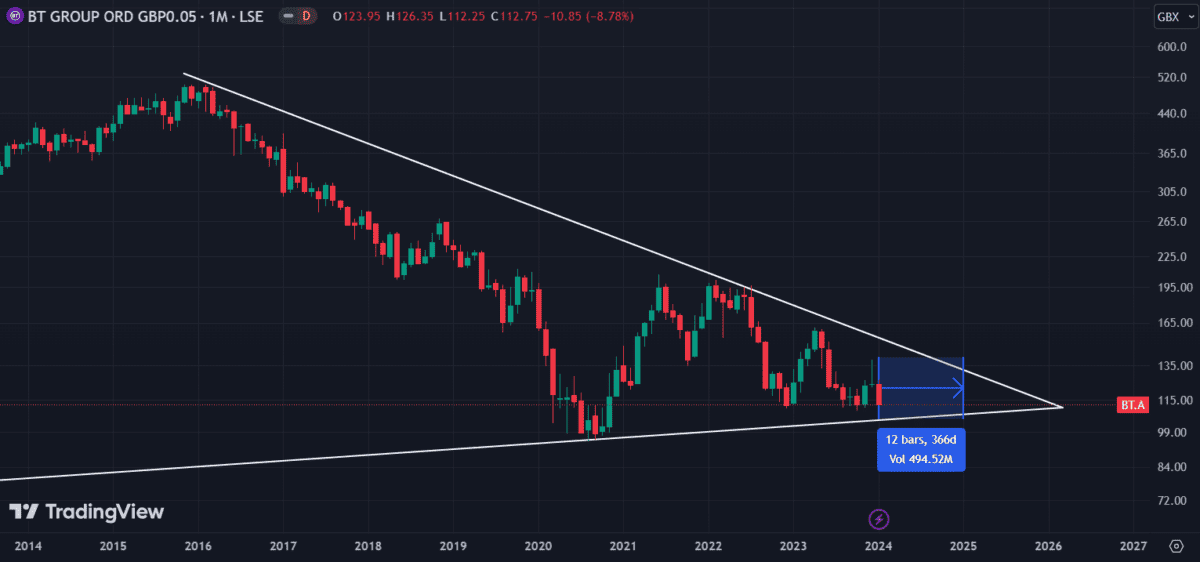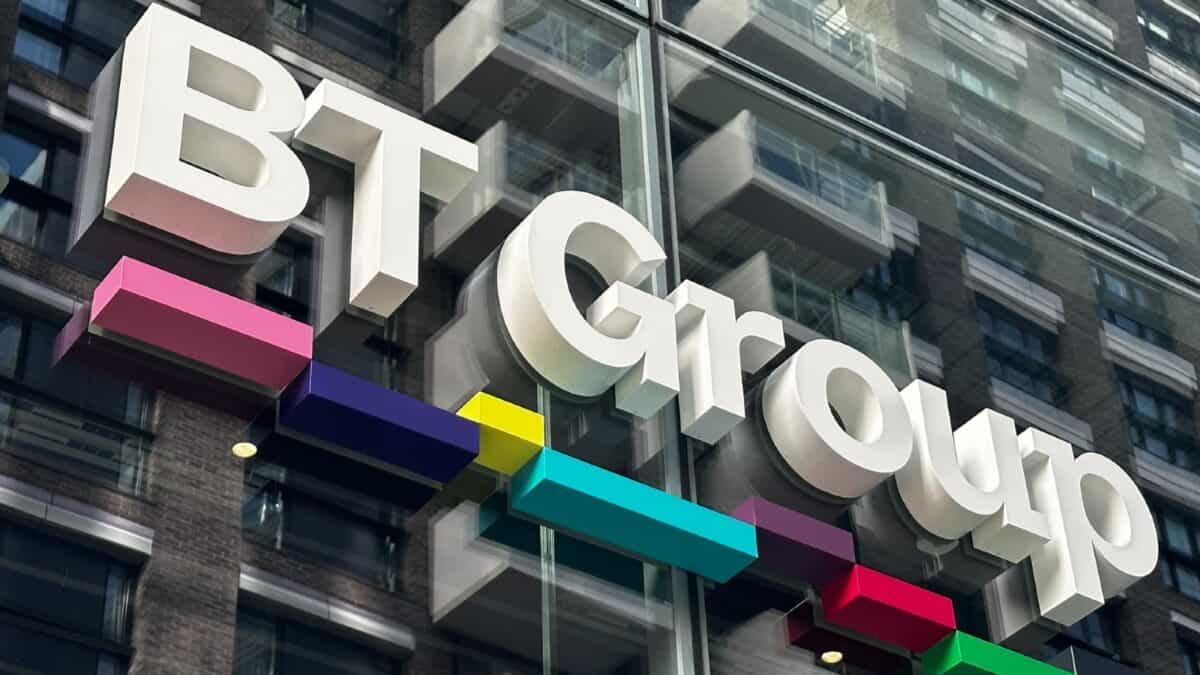The BT (LSE:BT.A) share price declined for several years last decade, dropping from 502p in early 2016 to 200p by 2020. Like many stocks, it lost 50% of its value during the pandemic but recovered by mid-2021.
Recently, it’s been trading in an ever-tightening range between 110p and 160p – where I think it will remain for the rest of 2024. A boost to the share price in early December 2023 was short-lived, with this month seeing a further 10% loss.
The share price now hovers on the historical support level of 110p. This level shored up the price in both January and October last year. Short term, this could be a good entry point for me to buy. I think it’s unlikely to fall below 110p and will probably regain levels between 120p and 130p in the coming months.

What about the long term?
BT earnings and revenue have been declining at 6.8% and 3.2%, respectively. Meanwhile, the wider telecoms industry has grown 14.5%. BT earnings are predicted to continue declining at 7.3% per annum, leading to an estimated return on equity (ROE) of only 10% in three years. Fortunately, it has a favourable 6.8% dividend yield.
I suspect the BT share price will continue moving in a tight range throughout 2024. As volatility decreases towards the end of 2025, it’s common in these patterns that the price will make a large movement either up or down.
Which direction the price moves will depend on several factors.
A one-off accounting scandal initiated its decline in 2016. This was compounded by fewer UK residents using landline phones. But these issues should now be put to rest.
Today, BT-owned mobile operator EE has grown to become the largest mobile network in the UK. Furthermore, BT commands 33% of the country’s broadband internet market. As the core telecommunications provider to the UK since 1846, I doubt its solid foundation will falter anytime soon.
But that alone doesn’t guarantee future growth. It faces stiff competition in the UK and must innovate if it hopes to retain its 30-million-strong customer base.
Can a digital revolution revive the share price?
Earlier this month, the UK Parliament released further information regarding the decommissioning of old copper analogue telephone lines. This is part of a plan to switch to a fully digital network by 2025.
This means all UK phone calls will operate via the internet using Voice over IP (VoIP) technology – similar to Zoom or Skype, but without the video.
I believe the implementation and eventual outcome of this upgrade will be the deciding factor for the BT share price. Competitors Vodafone and Three are already eyeing the mobile provider crown, with plans for a merger that will trump BT’s EE network as the market leader.
If BT fails to deliver a smooth transition to a fully digital network, I believe it runs the risk of losing its position as the UK’s core telecommunications provider.
This year will be one to watch, as initial developments could reveal early signs of just how the digital transition will pan out. I’ll keep a close watch before making a decision to buy or not.








